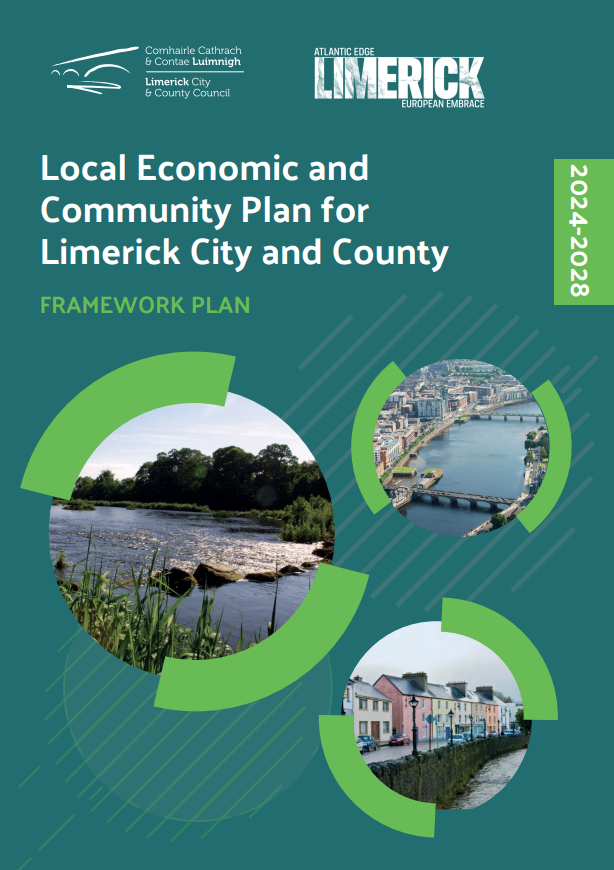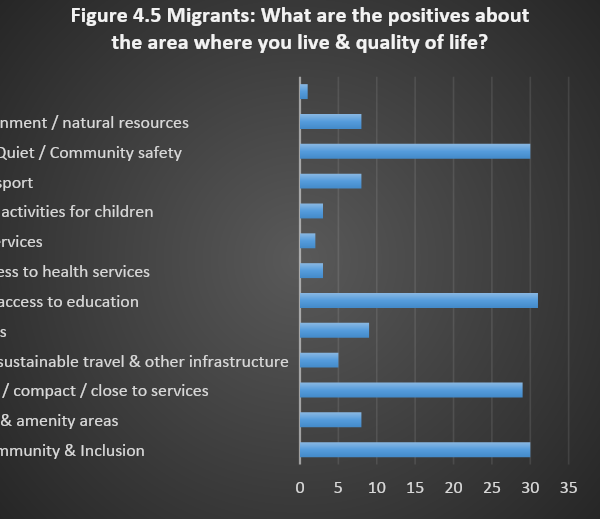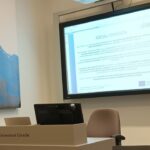The Local Economic and Community Plan (LECP) is a statutory plan, led by the local authority. The preparation and implementation of the LECP is supported by collaborations with public agencies, community and voluntary bodies and sectoral interests in the local setting. The locally-led, coordinated and collaborative approach is a key characteristic of the LECP.

The LECP 2024-2028 is the second such plan for Limerick. It was prepared in the context of significant changes in the local economy, society and local communities in urban and rural Limerick. The purpose of the LECP is “to set out, for a six-year period, the objectives and actions needed to promote and support the economic development and the local and community development of the relevant Local Authority area, both by itself directly and in partnership with other economic and community development stakeholders”. The overall aim is “to promote well-being and quality of life of citizens and communities” including all people living and working in the county, some of whom are not citizens.
A public consultation process informed the preparation of the LECP.
The consultation process centred on public consultation meetings in physical settings in different locations in Limerick and engagement workshops with social groups that typically are not well-represented in consultation processes, including members of migrant communities and migrant youths.
The approach to the consultations with community interests drew on A Guide for Inclusive Community Engagement in Local Planning and Decision-making, applying the nine principles for inclusive community engagement; genuine, purposeful, planned, clear, inclusive, collaborative, accountable, accessible and fit for purpose.
The key points on the findings of the public consultations and targeted engagement with specific social groups are presented in summary below.
Local Areas: Perspectives of Migrants living in Limerick
The analysis presented in the graphs is based on the number of times specific issues were named, clustered/ aggregated under thematic headings.

Focusing on migrants, there was strong consistency in the positives about their local area as a place to live and their day-to-day quality of life. The findings reflect that many of the migrants that were consulted had arrived relatively recently and are beneficiaries of Temporary Protection (Ukrainian) or International Protection applicants. The four most frequently cited positives are: education and access to education (especially good schools, access to education and quality of teaching in adult education), living in a peaceful, quiet area where there is a sense of community safety, the friendliness of people, community and inclusion, and living in areas (many in the city centre) close to services, shops and amenities or compact and walkable local neighbourhoods.
The negatives from the migrants’ perspectives, in order of the frequency with which they are cited, are: poor public transport services, long commuting times for those migrants that need to travel to services and jobs and feeling isolated; followed by lack of, or unaffordable, housing to rent and issues with accommodation, as well as difficulties accessing healthcare. Delays in service response is a further issue (immigration and health care). Lack of amenities and activities for children and families (play, free/low cost activities, indoor space and things to do after 6pm) is a further issue cited frequently. In relation to jobs, lack of access to jobs to match the level of skills and qualifications, recognition of qualifications, and dependence on low wage jobs are the main issues for migrants.
The top four suggestions by migrants for improvements, in order of frequency, are: better public transport services, investment in sport, recreation and amenities (play, parks and activity areas), increase housing supply and affordability and improve access to health services. These are followed by street cleaning/addressing litter, more shops and cafés, and expanding childcare and access to education (including English language classes).




